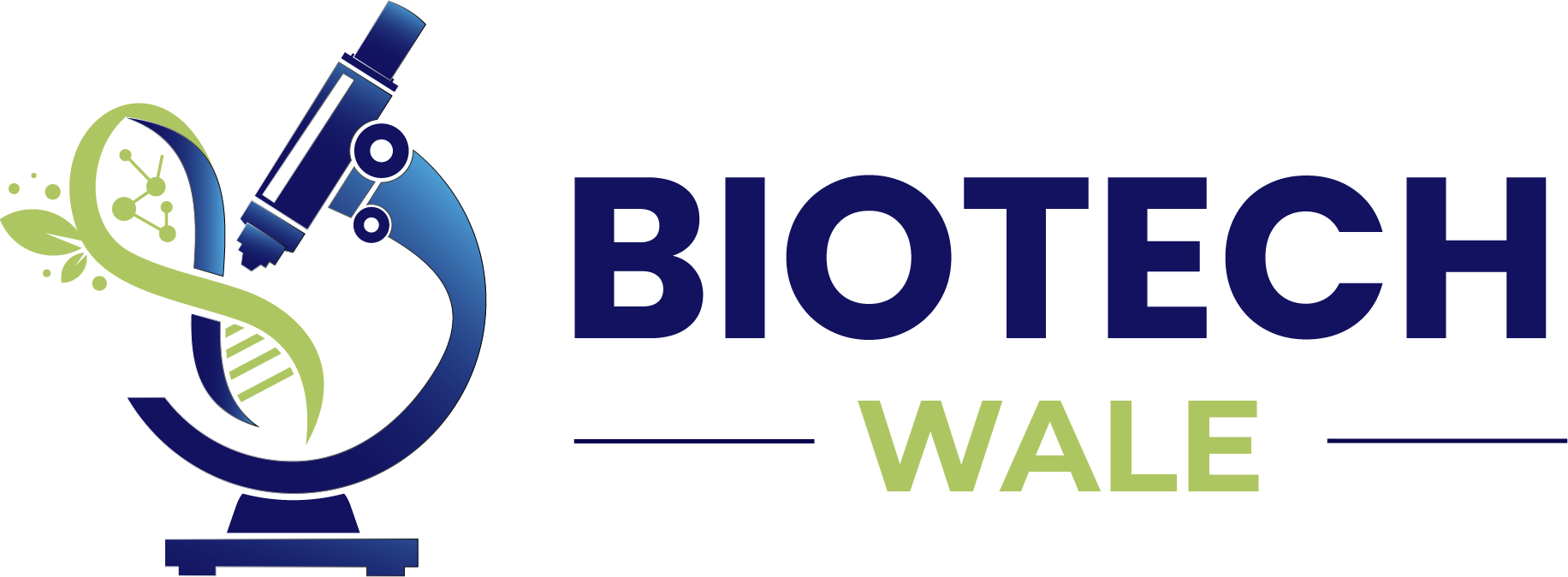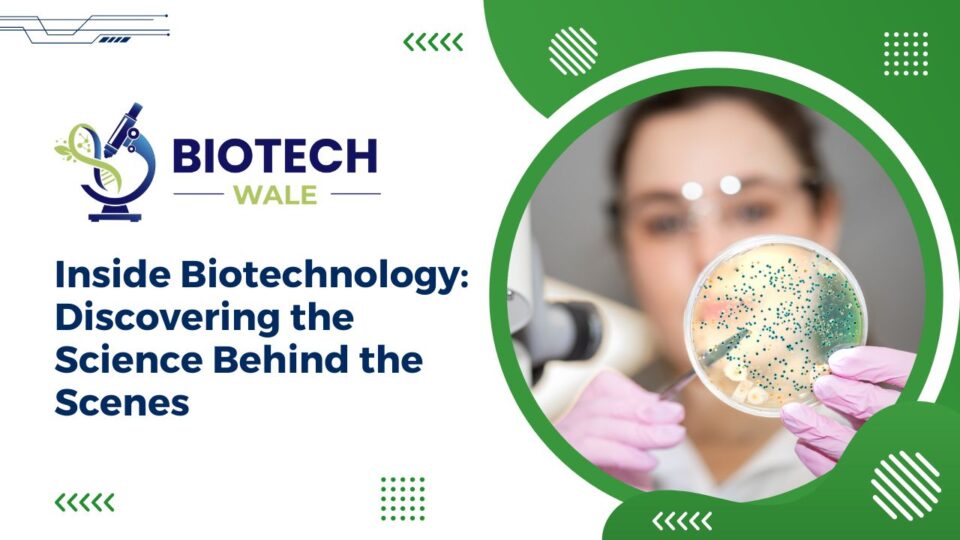Introduction to Biotechnology
Welcome to the fascinating world of biotechnology, where science fiction meets reality! Have you ever wondered about the magic happening behind the scenes in labs and research facilities? Well, get ready to dive into the realm of cutting-edge technology and groundbreaking discoveries. Biotechnology is not just a buzzword; it’s a game-changer that is revolutionizing industries, shaping our future, and even influencing ethical debates. Join us on this journey as we unravel the mysteries and marvels of biotechnology together!
History of Biotechnology
Have you ever wondered about the roots of biotechnology? The history of this fascinating field dates back thousands of years, with ancient civilizations using fermentation techniques to produce food and beverages. Fast forward to the 20th century when scientists began manipulating living organisms at a molecular level.
In the 1970s, the birth of genetic engineering revolutionized biotechnology by enabling researchers to modify DNA sequences. This breakthrough paved the way for numerous advancements in healthcare, agriculture, and environmental sustainability. As technology continued to evolve, new tools like CRISPR-Cas9 emerged, offering precise gene editing capabilities.
Today, biotechnology plays a crucial role in developing vaccines, creating genetically modified crops for increased yield, and even producing biofuels as sustainable alternatives. Understanding how far we’ve come in harnessing nature’s building blocks is key to appreciating the endless possibilities that lie ahead in this dynamic field.
Applications of Biotechnology in Various Industries
Biotechnology is not just limited to laboratories and research facilities. Its applications span across various industries, revolutionizing the way things are done. In agriculture, biotechnology plays a crucial role in developing genetically modified crops that are more resistant to pests and diseases, leading to increased yields and sustainability.
In the healthcare sector, biotechnology has paved the way for personalized medicine, where treatments can be tailored to individual patients based on their genetic makeup. This has significantly improved patient outcomes and reduced side effects of traditional one-size-fits-all approaches.
The environmental sector benefits from biotechnology through the development of biofuels and bioremediation techniques that help clean up pollutants in soil and water. By harnessing the power of biological systems, industries can reduce their carbon footprint and operate in a more sustainable manner.
The applications of biotechnology in various industries continue to expand as researchers discover new ways to leverage biological processes for innovation and improvement across sectors.
Breakthroughs and Advancements in Biotechnology
Breakthroughs and Advancements in Biotechnology are constantly pushing the boundaries of what is possible in science and technology. From gene editing to synthetic biology, researchers are revolutionizing how we approach healthcare, agriculture, and environmental sustainability.
One of the most exciting breakthroughs in recent years has been the development of CRISPR-Cas9 technology, which allows for precise genetic modifications with unprecedented accuracy and efficiency. This tool has opened up new possibilities for treating genetic disorders and creating genetically modified organisms that can help address food security issues.
Advancements in biotechnology have also led to the production of biofuels from renewable sources like algae or plant waste. These sustainable alternatives to traditional fossil fuels offer a promising solution to reduce greenhouse gas emissions and combat climate change.
Furthermore, biotechnologists continue to improve diagnostic tools for early disease detection, personalized medicine tailored to individual genetic profiles, and innovative therapies such as immunotherapy for cancer treatment. The future holds endless possibilities as scientists push forward with groundbreaking research in this ever-evolving field.
The Impact of Biotechnology on Society and the Environment
Biotechnology has significantly impacted society and the environment in various ways. In agriculture, genetically modified crops have helped increase crop yields and reduce the need for harmful pesticides. This has not only improved food security but also minimized environmental damage caused by conventional farming practices.
In healthcare, biotechnology has revolutionized the development of new drugs and therapies, leading to better treatment options for various diseases. From personalized medicine to gene editing technologies like CRISPR, biotech innovations are changing the way we approach healthcare and improving patient outcomes.
Moreover, advancements in biotechnology have paved the way for sustainable solutions in industries such as energy production and waste management. Biofuels derived from renewable sources offer a cleaner alternative to fossil fuels, while bioremediation techniques help clean up polluted environments naturally.
The impact of biotechnology on society and the environment is profound and far-reaching. As we continue to unlock its potential, it’s essential to consider both the benefits and challenges that come with harnessing this powerful science for the greater good.
Ethical Considerations in Biotechnology
Ethical considerations play a crucial role in the field of biotechnology. As scientists delve deeper into genetic engineering and manipulation, questions arise about the implications of playing “creator” with living organisms.
One major ethical concern is the potential misuse of biotechnological advancements. The ability to modify genes opens up possibilities for creating genetically modified organisms (GMOs) that could have unknown consequences on ecosystems and human health.
Another pressing issue is consent and privacy when it comes to genetic testing. Who owns genetic information? How can we ensure that individuals have control over their own biological data?
Additionally, there are moral dilemmas surrounding gene editing technologies like CRISPR-Cas9. While these tools hold promise for treating genetic disorders, they also raise concerns about tinkering with the fundamental building blocks of life.
Navigating the ethical landscape of biotechnology requires careful consideration and ongoing dialogue to ensure that scientific progress aligns with societal values and responsibilities.
Future Implications of Biotechnology
As we look towards the future, the implications of biotechnology are vast and exciting. With advancements in gene editing technologies like CRISPR, the possibilities seem endless. Imagine a world where genetic diseases could be eradicated before birth or where customized treatments based on individual DNA profiles become the norm.
In agriculture, biotechnology offers solutions to feed a growing population sustainably. From drought-resistant crops to enhanced nutritional content, biotech is revolutionizing farming practices. In medicine, personalized therapies tailored to each patient’s unique genetic makeup could lead to more effective treatments with fewer side effects.
Environmental conservation stands to benefit as well, with bioengineering offering ways to clean up pollution and mitigate climate change. Bioplastics made from renewable resources could reduce our dependence on fossil fuels while minimizing waste production.
The future of biotechnology holds immense promise for improving human health, enhancing food security, and protecting our planet for generations to come.
Career Opportunities in the Field
Are you passionate about science and technology? Do you have a keen interest in making a positive impact on society and the environment? If so, a career in biotechnology might be the perfect fit for you. The field of biotechnology offers a wide range of exciting career opportunities for individuals with diverse backgrounds and skill sets.
From research scientists developing cutting-edge therapies to regulatory affairs specialists ensuring compliance with laws and regulations, there are countless roles within the biotechnology industry. Additionally, positions in quality control, product development, marketing, and sales provide avenues for professionals to contribute their expertise.
Whether you’re interested in genetic engineering, pharmaceuticals, agriculture, or environmental conservation, there is a place for you in the dynamic world of biotechnology. With rapid advancements and innovation driving the industry forward, now is an exciting time to pursue a career in this ever-evolving field.
By honing your skills and staying abreast of emerging trends, you can carve out a rewarding career path that not only challenges you intellectually but also allows you to make meaningful contributions to scientific progress.
The Various Fields of Biotechnology
Biotechnology encompasses a wide array of fields, each with its unique focus and applications. One prominent field is agricultural biotechnology, where scientists work to enhance crop yield, develop drought-resistant plants, and create genetically modified organisms to address food security challenges globally. In the medical field, biotechnology plays a crucial role in developing new pharmaceuticals, personalized medicine, gene therapy, and diagnostic tools for various diseases.
Another exciting area is environmental biotechnology which focuses on leveraging biological processes to remediate pollution, produce biofuels sustainably, and conserve ecosystems. Industrial biotechnology involves using microorganisms or enzymes to produce chemicals, biofuels, and materials in a more eco-friendly manner. Moreover,
bioinformatics combines biology with computer science to analyze biological data like DNA sequences or protein structures effectively.
In essence, biotechnology offers endless possibilities across diverse sectors that continue to shape our world today.
Challenges and Future Directions for Biotechnology
The field of biotechnology faces various challenges as it continues to evolve and innovate. One major challenge is the ethical considerations surrounding genetic engineering and manipulation, raising questions about the boundaries of scientific exploration. Additionally, ensuring the safety and efficacy of biotechnological products remains a priority to gain public trust.
Moreover, staying ahead of rapidly advancing technologies poses a challenge for researchers and scientists in this dynamic field. As new breakthroughs emerge at an unprecedented pace, adapting to these changes while maintaining high standards is crucial for success.
Looking towards the future, one direction for biotechnology is personalized medicine tailored to individual genetic profiles. This revolutionary approach could transform healthcare by providing targeted treatments with higher success rates.
Despite facing obstacles, the future of biotechnology holds immense potential for addressing global challenges and improving quality of life across various industries.
Conclusion: The Endless Possibilities of Biotechnology
Biotechnology is a field that continues to push the boundaries of what is possible, offering endless possibilities for innovation and advancement. With its rich history, diverse applications in various industries, and continuous breakthroughs and advancements, biotechnology has proven to be a game-changer.
As we look towards the future, it is clear that biotechnology will play an increasingly vital role in shaping our world. From personalized medicine to sustainable agriculture and beyond, the impact of biotechnology on society and the environment cannot be understated. Despite ethical considerations and challenges ahead, the potential for positive change through biotechnology is immense.
For those considering a career in this dynamic field, there are abundant opportunities waiting to be explored. Whether you’re interested in genetic engineering, pharmaceuticals, environmental science, or any other aspect of biotechnology, there is a place for you to make a difference.
In conclusion: The possibilities within biotechnology are truly limitless. As we continue to unlock the mysteries of life at the molecular level, we open doors to new solutions for some of our most pressing challenges. Embrace the journey into this fascinating world where science meets innovation – who knows what discoveries lie ahead!





Average Rating